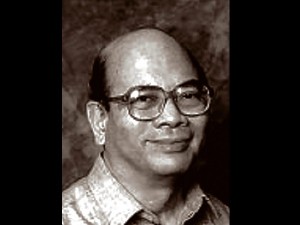Informal settlers can be responsible allies
Of the nearly 12 million people living in Metro Manila, more than two million—or roughly one fifth of the sprawling city’s population—live in informal settlements.
They belong to the metropolis’ 600,000 families who are mostly living below the poverty line of P46 per day.
Incidentally, a lot of these families are also facing eviction, violent demolition, and relocation to far away sites like San Mateo and Rodriguez towns in Rizal, Calauan in Laguna, and San Miguel in Bulacan.
According to University of Asia and the Pacific director of research and Prof. Dr. Bernardo Villegas, these forced evictions and eventual relocation often result in people losing not just their houses, but also their possessions, their social networks, and their access to work and services.
“But because of a mismatch between skills and available opportunities, most of these relocated squatters find it hard to land new jobs. As a result they go back to Metro Manila and become informal settlers once more,” he noted.
Another approach
Speaking before officers and members of the Subdivision and Housing Developers Association last week, Villegas suggested another approach: why not try on-site redevelopment or in-city relocation?
“In fact, this is being done in a number of communities with the help of the private sectors—the developers themselves—who believe, that if they allow these families to lead a life of dignity, they will soon earn enough for them to be able to afford for themselves a descent home via a monthly ammortization,” Villegas said.
SHDA national president Paul Tanchi agreed: “Among the issues our members have to face all these years is how to deal with illegal settlers that have occupied the land meant for their housing projects. When before our members have to spend considerable amount of money for the relocation, court resolutions that usually take decades or had to deal with defiant residents, a number of our members realized that if they enter into some cooperative arrangement, they could peacefully address the problem of illegal settlements and even poverty.”
“My company has faced this predicament in a number of our developments in Quezon City. Realizing the challenge we had to face, we talked to the leaders of the informal settlers occupying our properties and convinced them that we become their estate manager—as we develop the place we also agree to allocate a considerable portion of the property for them. As a result, we were able to build homes that we were able to sell but at the same time allot a portion or even set up structures that these indigent families could also utilize (like daycare center or park). In some cases, we were able to convince a number of these families to buy units from our projects considering the monthly amortization is quite reasonably affordable for them or much lower than their monthly rental fee,” shared Willie Uy of Phinma Properties.
Symbiotic arrangement
This symbiotic arrangement is in fact being considered by the Aquino administration as the President recently instructed Vice President Jejomar Binay, also the government’s housing czar, to draw up a plan to build at least 1,750 medium-rise residential buildings (MRBs) intended for informal settlers of Metro Manila.
The plan of the Housing and Urban Development Coordinating Council, which Binay also heads, is to initially target 20,000 families per year for the next five years.
The HUDCC projects that about 1,750 MRBs are needed for the housing program wherein each MRB will be five stories high with 60 units per MRB.
Responsible allies
“SHDA believes that informal settlers could become responsible allies in addressing housing backlog, poverty alleviation and even the problem of illegal settlers,” Tanchi said.
He related that through regular meetings SHDA members are able to share their respective experiences with regard to dealing with illegal settlers, how some of them successfully solved the challenge without resorting to violence or costly litigation.
Villegas said: “Relocated informal settlers go back to squatting in Metro Manila because the relocation sites are very far from where they eke a living and transportation costs eat up most of their earnings. If the private sector decides to lead the way in setting up reasonably priced medium-rise buildings within Metro Manila or even reasonably priced units within their community, even these families so used to living in depressing conditions would reconsider.”















